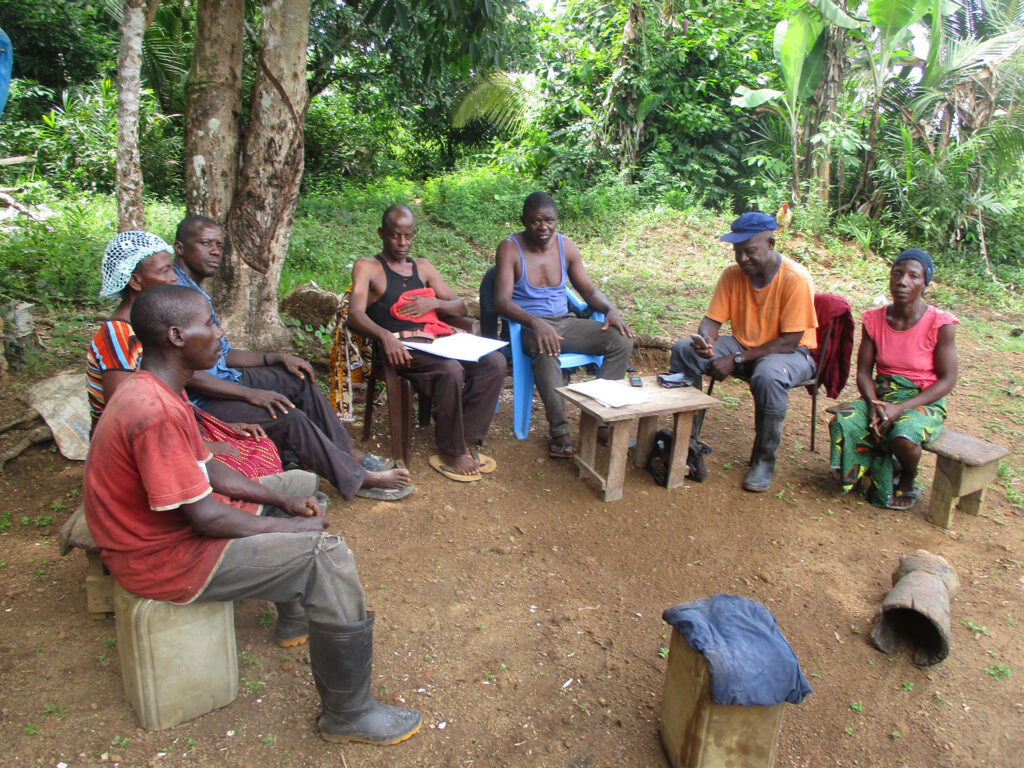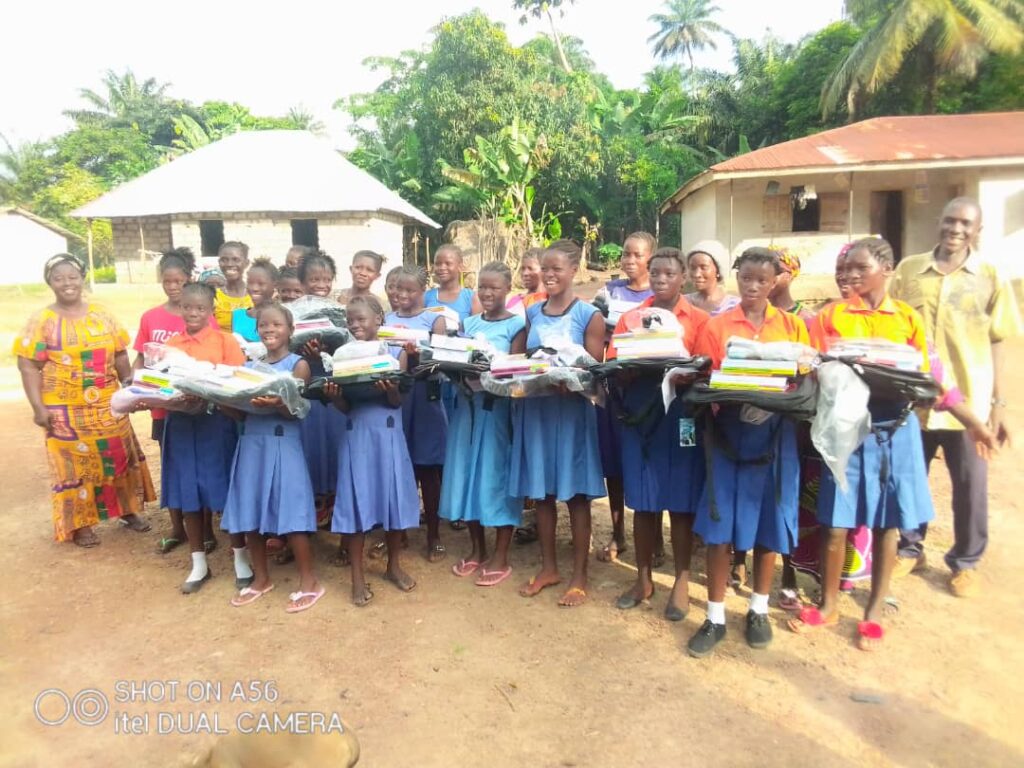Building solidarity across borders
For nearly a century, Agricultural Missions has worked alongside rural communities to confront land loss, food insecurity, and systemic inequality. Our programs are partnerships that connect farmers, students, faith leaders, and grassroots organizers in shared struggles for justice.
From study sessions in Appalachia to youth-led farms in Sierra Leone, we cultivate spaces where communities learn from each other, strengthen networks, and shape solutions that endure. Every program grows from the same principle: those closest to the struggle are also closest to the solutions.
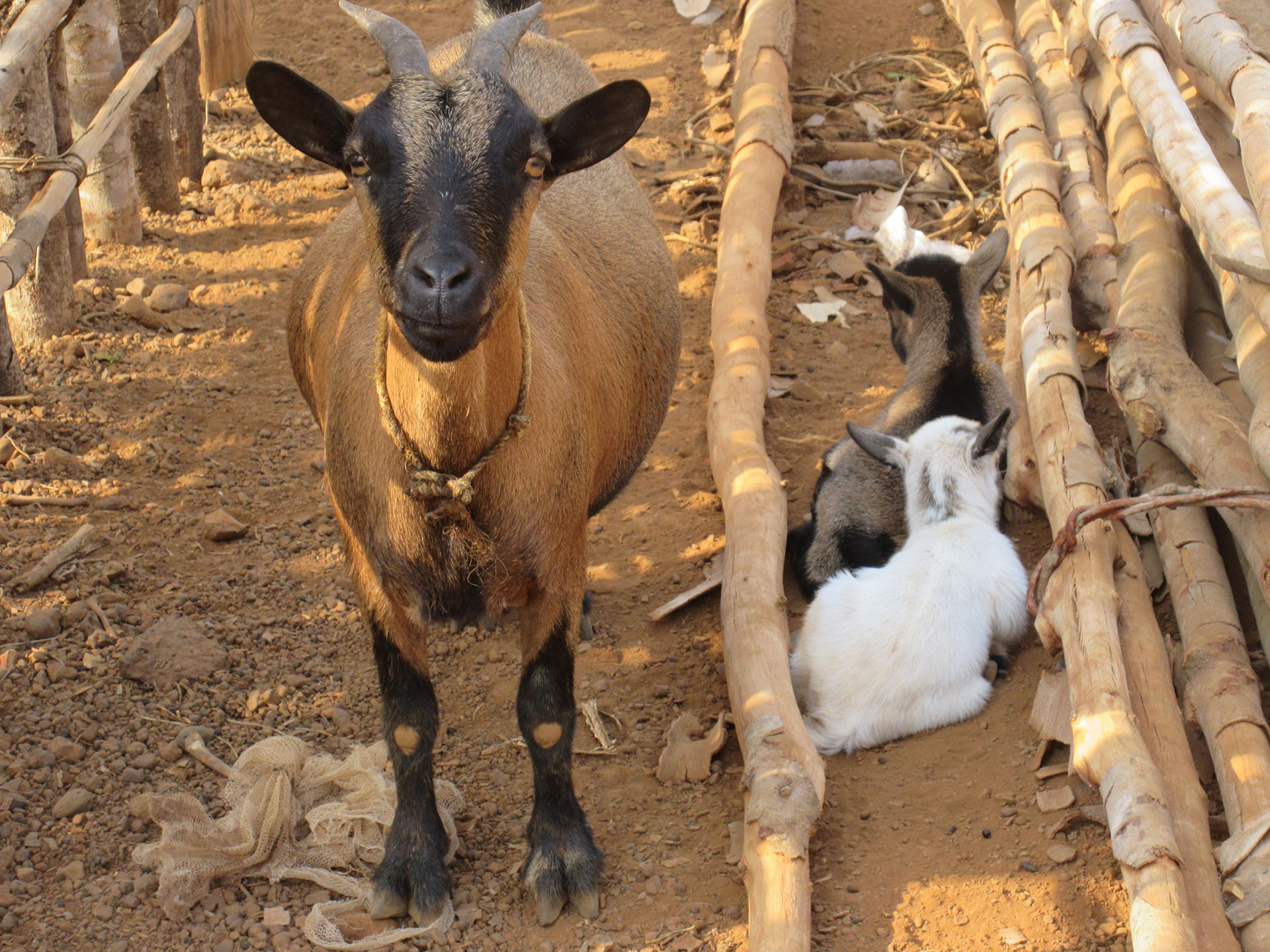
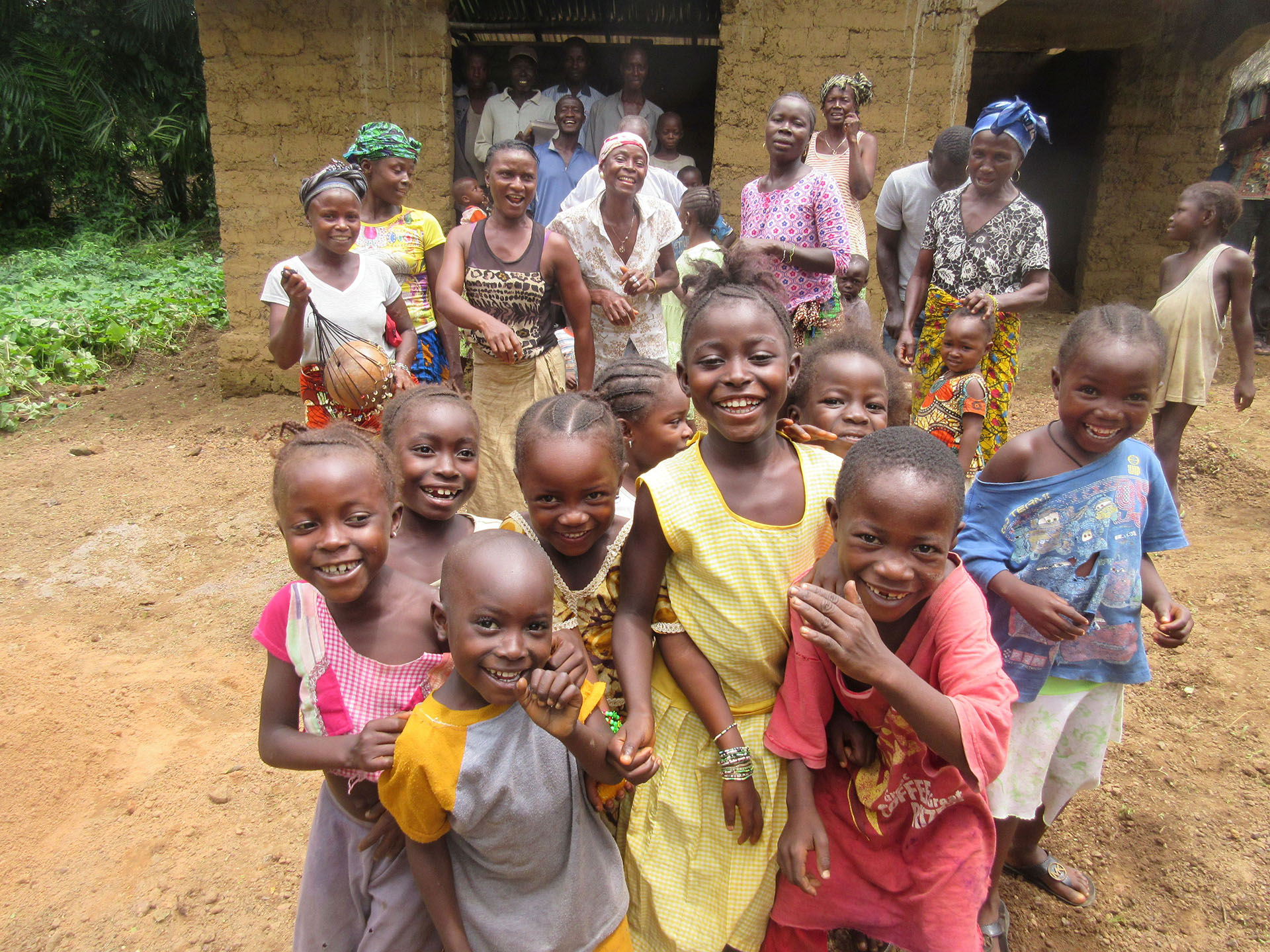
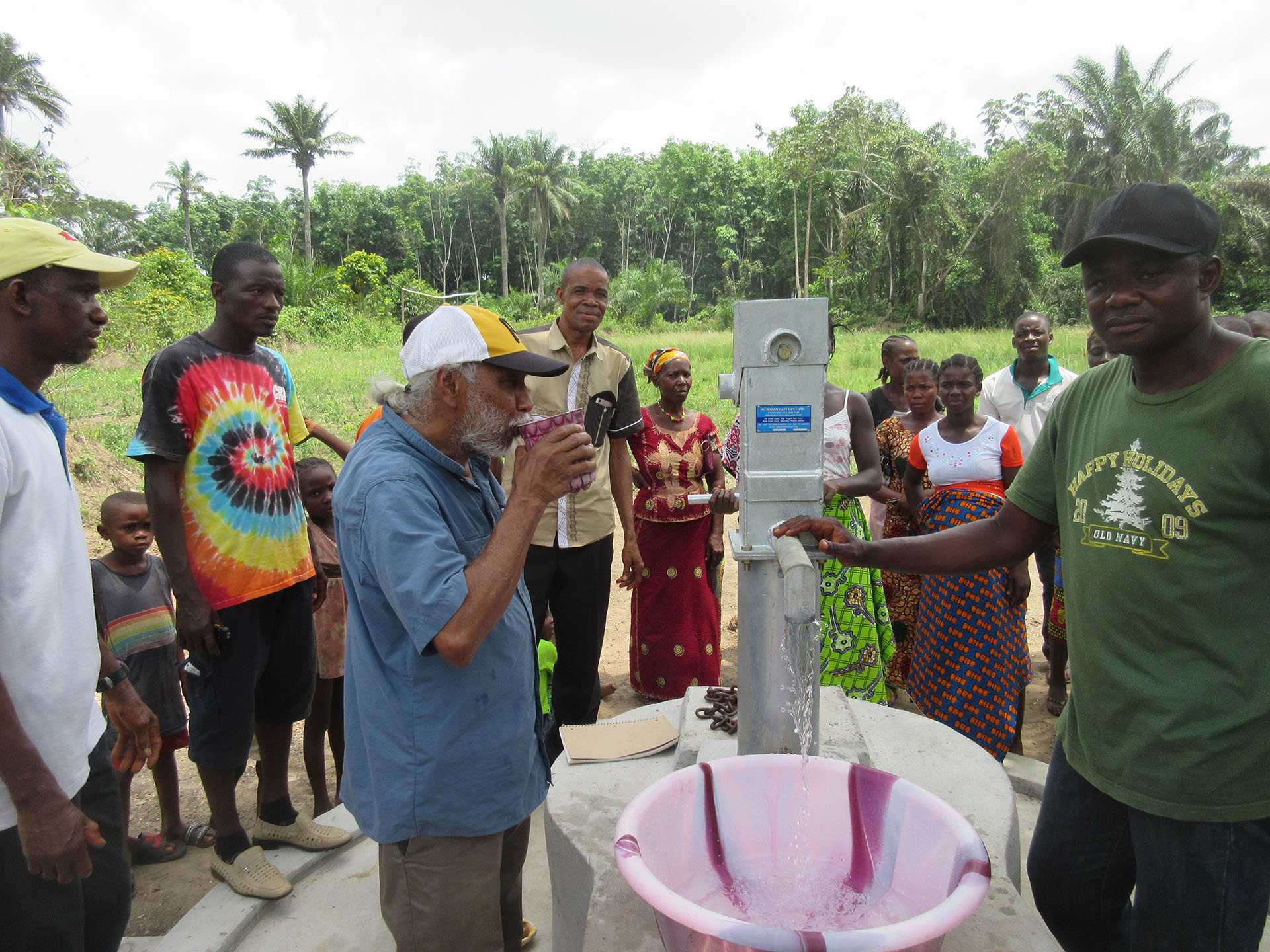
U.S. Programs
Study Sessions & Convenings
For nearly a century, Agricultural Missions has organized study sessions across the United States and abroad—from Appalachia and Puerto Rico to Nicaragua and the Philippines. These convenings bring together farmers, faith leaders, students, and rural organizers to share strategies, study land justice struggles, and strengthen solidarity across movements. Today, AMI is reviving this legacy by planning new Black Belt Strategy Session, connecting HBCUs, cooperatives, and youth leaders with counterparts from West Africa. These sessions are not conferences; they are immersive experiences where communities teach each other, rooted in shared lived struggles for justice.
Community Engagement & Network Building
AMI facilitates dialogue among diverse rural organizations in the U.S., linking local struggles to global ones. Past initiatives have supported Black farmers confronting land loss, Appalachian communities resisting displacement, and Indigenous networks defending their land and culture. Through relationship-building, Agricultural Missions helps movements expand their capacity, amplify their voices, and build alliances that cross borders.
Policy & Advocacy
Agricultural Missions works to bring the voices of rural communities—often left out of decision-making—into the national and international policy space. This includes raising awareness of structural racism in rural development, challenging unjust trade and agricultural policies, and advocating for women and youth as central actors in food systems. Our advocacy is grounded in the lived knowledge of partners and amplified through ecumenical and grassroots networks.
Preservation of Historical Agricultural Missions Documents
Agricultural Missions maintains and digitizes a vast archive of materials spanning from its 1930 founding to today—records of ecumenical consultations, grassroots exchanges, and historic struggles for land and justice. By preserving these documents, Ag Missions safeguards the legacy of rural peoples’ organizing, ensuring that new generations of activists, scholars, and faith leaders can draw inspiration from these lessons of solidarity
Site Visits to West Africa
International solidarity is core to Ag Mission’s work. Site visits to Sierra Leone and Liberia allow U.S.-based partners—students, scholars, and rural leaders—to engage directly with grassroots organizations tackling food insecurity, gender inequality, and climate change. These visits create two-way exchanges: African youth learn from U.S. struggles for land retention and racial justice, while U.S. leaders learn from African approaches to food sovereignty, cooperative farming, and resilience.
International solidarity is core to Ag Mission’s work. Site visits to Sierra Leone and Liberia allow U.S.-based partners—students, scholars, and rural leaders—to engage directly with grassroots organizations tackling food insecurity, gender inequality, and climate change. These visits create two-way exchanges: African youth learn from U.S. struggles for land retention and racial justice, while U.S. leaders learn from African approaches to food sovereignty, cooperative farming, and resilience.
In March 2026, Agricultural Missions will lead a delegation to West Africa to deepen these exchanges, laying the foundation for a transnational Study Session in the U.S. Black Belt later that year.
Learn MoreWest Africa Initiative Programs
Gender Justice & Girls’ Education
Agricultural Missions, Inc. (AMI) partners with rural communities in West Africa to strengthen food security, expand livelihoods, and open doors for girls to stay in school. Together, our Girls Scholarships and Youth in Agriculture programs form a virtuous cycle: youth-led farming and beekeeping generate income that helps fund scholarships for girls.
Gender Justice: Girls Scholarship
AMI champions education as a fundamental right. Our Girls Scholarship program removes financial barriers—covering fees, uniforms, and school supplies—so girls can attend and thrive. Community mentors help each student set goals, track progress, and access leadership opportunities.
What a scholarship covers:
- Tuition and exam fees
- Uniforms and supplies
- Mentoring and leadership clubs
Where we work:
- Rural villages using a Village-to-Village model
- Liberia
- Sierra Leone
Youth in Agriculture
Youth groups cultivate staple crops, manage storage facilities, and raise small livestock. Through Farmer Field Schools, home gardens, and basic agribusiness training, young leaders increase harvests, nutrition, and incomes—strengthening community resilience.
Core activities:
- Crop production & storage management
- Goat and poultry husbandry
- Home gardens & nutrition education
Training includes:
- Community-based animal health
- Farmer Field Schools
- Record keeping & marketing
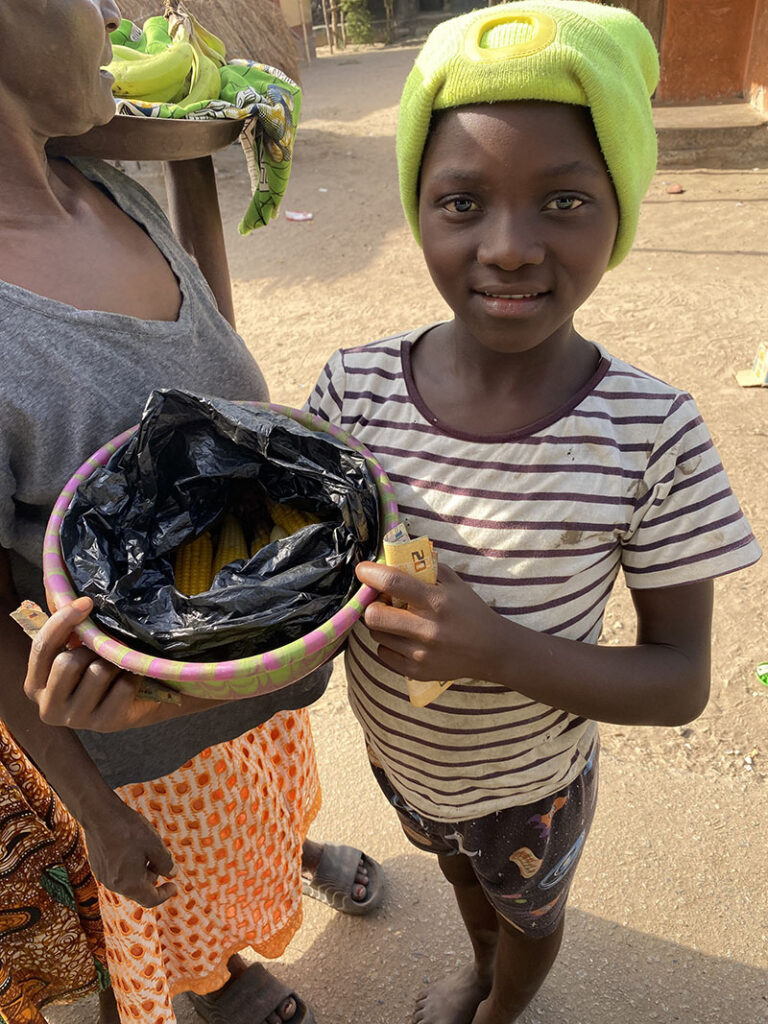
Beekeeping to Fund Girls’ Scholarships
To increase sustainability, Youth in Agriculture groups are adding small-scale beekeeping. Honey sales create a community-owned revenue stream that helps fund Girls Scholarships—so more students can enroll and complete school each year. It’s a practical, climate-friendly livelihood that also supports pollination for local crops.
Highlights:
- Honey micro-enterprise
- Community-managed funds
- Education first
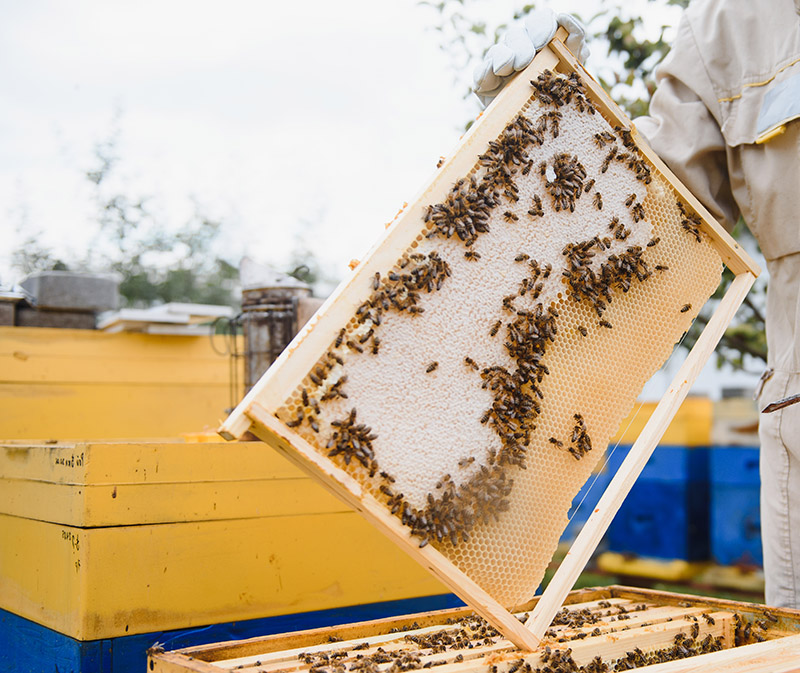
Community Agriculture & Food Sovereignty
At the heart of Ag Missions’ work is food sovereignty: the right of communities to control their own food systems. Through farmer field schools, local leadership training, and sustainable agriculture practices, AMI strengthens rural communities’ ability to feed themselves, withstand economic shocks, and resist exploitative agricultural systems. By combining traditional knowledge with new tools, these programs build resilience against hunger, climate change, and displacement.
